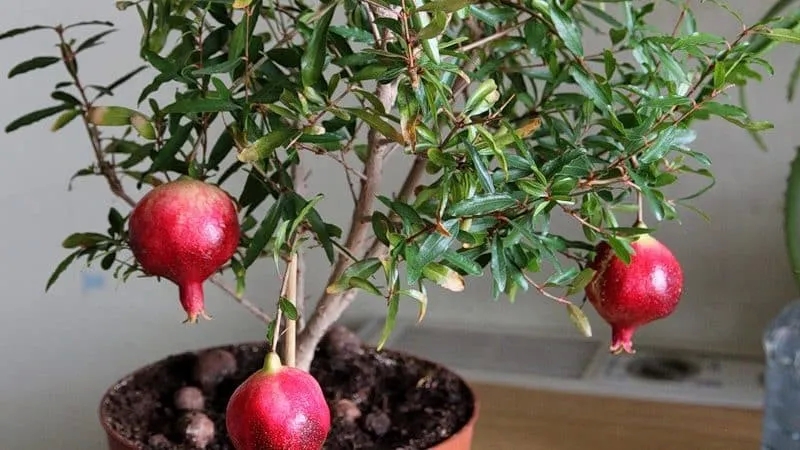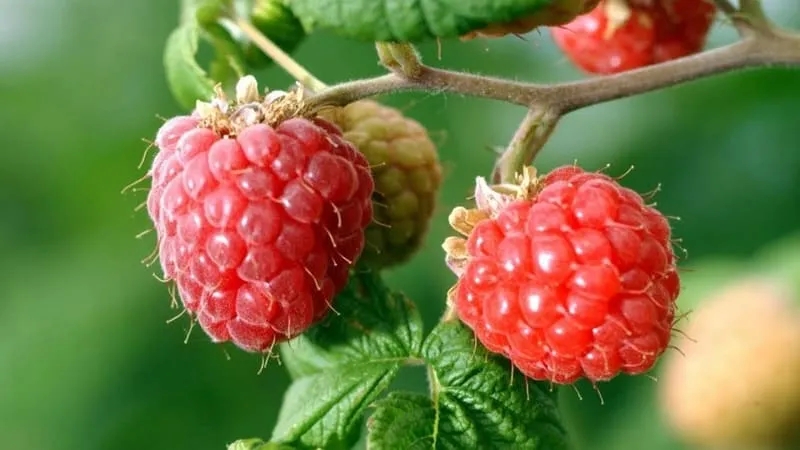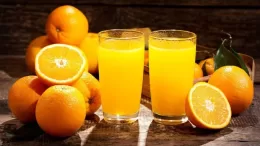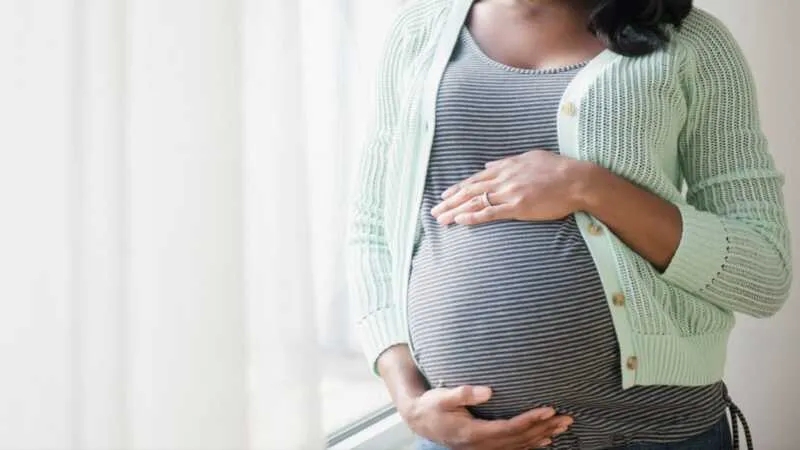Nature has provided humanity with a vast variety of fruits that offer beneficial effects on the body. One such fruit is the pear. It is especially beneficial for women. Pears can be consumed fresh, dried, or as juice, in fruit mixes, and more. In this article, we will explore the benefits of pears and whether they can cause any harm.
Table of contents
Caloric Content, Vitamins, and Nutritional Value of Pears

Pears are a rich source of folic and ascorbic acid, as well as fiber, which are essential for women's health at any age.
With only 47 kcal per 100 g, pears contain 0.3 g of fat, 0.4 g of protein, and 10.3 g of carbohydrates, making them an excellent choice for those on a diet.
Did you know? Horticulturists note that different pear varieties contain varying amounts of iron. The darker the flesh, the higher the iron content.
Vitamins found in pears:
- B4 – 5.1 mg;
- B9 – 2 mcg;
- C – 5 mg;
- K – 4.5 mcg;
- B1 – 0.02 mg;
- B2 – 0.03 mg;
- B5 – 0.05 mg.
Macro- and micronutrients in pears:
- Potassium – 155 mg;
- Calcium – 19 mg;
- Phosphorus – 16 mg;
- Sodium – 14 mg;
- Magnesium – 12 mg;
- Boron – 130 mg;
- Aluminium – 110 mg;
- Iron – 2.3 mg, and others.
Pears surpass apples in mineral content but are slightly lower in vitamins.
Benefits of Pears for Women
Regular consumption of pears has a positive impact on women's health.
Pears are hypoallergenic and rich in fiber – 2.8 g per 100 g.
It is not recommended to eat a whole pear late at night to avoid burdening the digestive system. Pears are best absorbed in the morning. In the evening, half a pear is sufficient.
For Overall Health
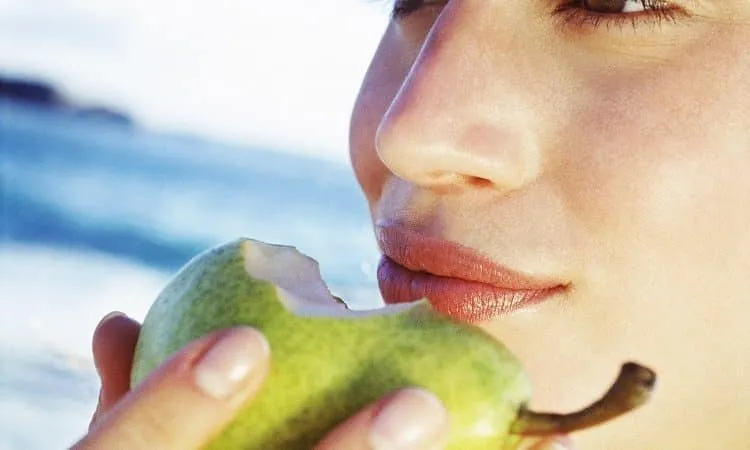
Pears help rejuvenate the skin, as the vitamin E in them slows down aging. Pear juice can quickly relieve headaches during menstruation and helps balance hormones during ovulation.
Benefits of pears for women:
- Strengthens the immune system;
- Improves cardiovascular health;
- Increases hemoglobin levels;
- Strengthens bones, hair, and nails;
- Reduces fatigue and stress;
- Detoxifies the liver.
Eating pears while dieting aids in weight loss. However, moderation is key – no more than 6 pears per day.
During Pregnancy
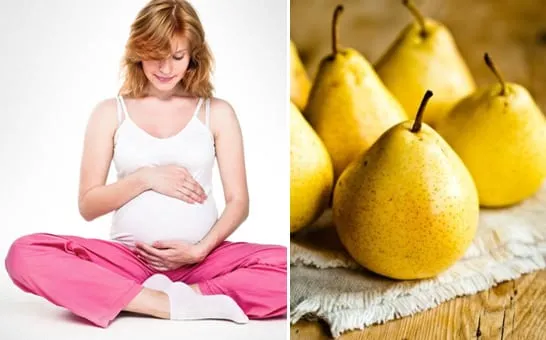
One pear a day provides folic acid, which is crucial in the first trimester of pregnancy. Vitamin B9 helps prevent developmental issues and supports the baby's brain formation.
Important! Pregnant women should consume no more than 3 medium-sized pears per day.
Additional benefits of pears during pregnancy:
- A few sips of pear juice relieve heartburn and boost appetite;
- Vitamin C protects against colds and viral infections;
- Fiber aids digestion and prevents constipation, which is particularly risky during pregnancy;
- Iron helps prevent anemia.
For Women Over 40
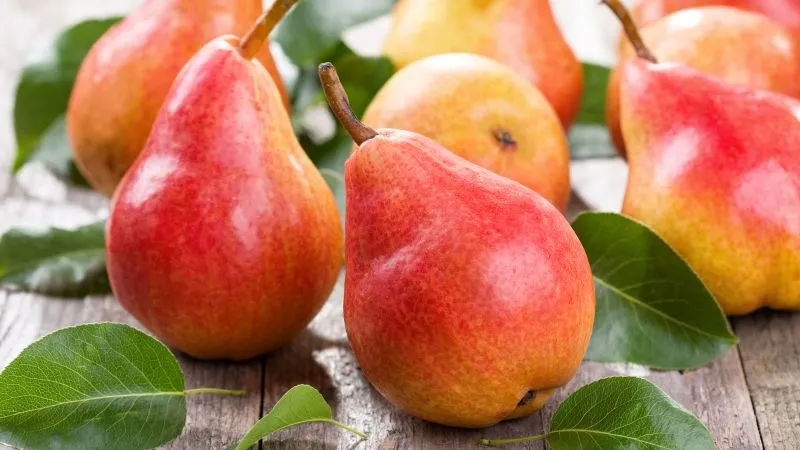
For women aged 40 and above, pears help manage menopause symptoms. During this stage, hormone production decreases, calcium levels drop, and skin, hair, and nails weaken.
Daily pear consumption can slow aging. Women in this age group should eat 2-4 pears daily, preferably baked for better digestion.
Benefits for women over 40:
- Vitamin C and copper reduce cancer risk by acting at a cellular level.
- Face masks with pear pulp smooth wrinkles and refresh the skin. Mix 2 tbsp pear pulp with 1 tsp honey and a pinch of cinnamon. Apply twice a week.
- Applying pear juice to the face, décolletage, and hands reduces age spots. Mix 2 tsp pear puree with 4 drops of hydrogen peroxide and apply with a cotton pad.
- Urinary tract infections are common at this age. A mix of pear, cranberry, and blackberry juice alleviates discomfort.
Potential Risks and Contraindications

Women with gastrointestinal issues should limit pear intake. Conditions like gastritis, ulcers, or colitis may worsen due to the fiber irritating the stomach lining.
Raw pears can cause bloating, affecting overall comfort.
Precautions:
- Individual intolerance;
- Allergic reactions to its components;
- Avoid overripe pears;
- Consume at least 30 minutes after meals;
- Sour or astringent varieties may cause digestive issues in older women.
Eating pears immediately after a heavy meat meal is not advisable, as it hinders protein absorption.
Important! Do not apply pear-based masks to broken or acne-prone skin.
Conclusion
Pears are packed with vitamins and minerals that benefit women at any age, especially during pregnancy. For women over 40, pears are an excellent daily dietary addition.

